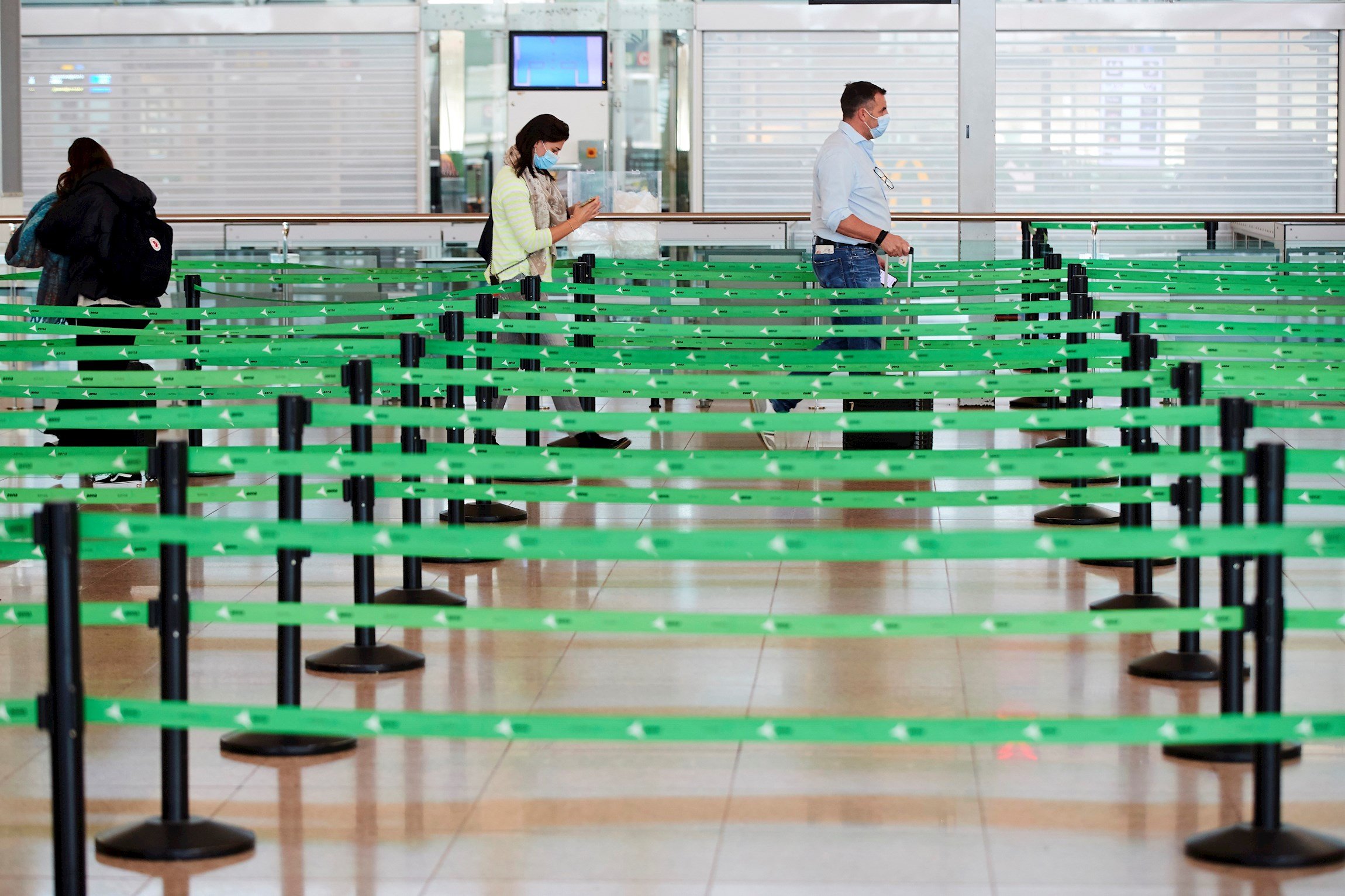Spain is to require a PCR coronavirus test for all travellers arriving from countries considered at risk. This was stated by Spanish health minister Salvador Illa on Wednesday during the meeting of the country's Interterritorial Health Council. Thus, people who want to enter Spanish territory from a country with high incidence of the disease must carry proof they are not infected, via a negative test result carried out in the 72 hours prior to arrival. This measure, which will come into force on Novermber 23rd, is in addition to other health controls already established for international passengers arriving in Spain, such as temperature control and visual checks. European countries such as Greece, the United Kingdom and Italy have already adopted the PCR requirement.
Specifically, the health control form that must be filled out by all passengers arriving in Spain will now include a new question: whether the passenger has had a negative PCR test performed in the three days prior to arrival. According to health ministry sources, authorities will be able to demand the result of this test from the passenger at any time. The document must be the original, written in Spanish or English, and may be carried as a paper document or in electronic format. If it cannot be shown electronically, it must be personally presented before boarding.
Health minister Illa has confirmed that the PCR requirement is obligatory for all travellers arriving in Spain by sea and air, but will not be required at land borders. Not only foreigners arriving in Spain but also Spanish citizens and residents have to comply with the demand. When the requirement comes into force on November 23rd, travellers arriving from 65 countries will be affected, including most countries in the European Union, the UK and the US: the full list of 65 is given at the end of this article.
Countries at risk
What does Spain consider to be a country at risk? In the case of European Union countries and Schengen area partners, the criteria referred to is the EU recommendation 2020/1475 of 13th October, which establishes a traffic light system based on the cumulative incidence of Covid-19, and will be used as a reference. A red light is signalled when a territory has a 14-day case notification rate of over 150 (that is, more than 150 cases notified per 100,000 inhabitants in the last 14 days), or a rate of over 50 if the test positivity rate is greater than 4% (that is, when over 4% of PCR tests given in a territory return a positive result).
Currently, almost all of Europe receives a red light. Only Norway, Finland and some areas of Greece are rated 'orange', which means that travellers arriving from those areas do not have to present a PCR result in Spain. The European Centre for Disease Prevention and Control maintains a regularly updated European map showing current traffic light colours.
As for other countries, the Spanish health ministry says the guide will be the country's 14-day case notification rate, with the "red light" level being 150 or above.
Travel agencies, tour operators and transport companies that sell tickets will be required to inform travellers of the obligation to have a PCR test with a negative result in order to travel to Spain.
Full list of countries
From November 23rd, people arriving in Spain by air or sea from the following 65 countries and territories will be required to meet the negative PCR requirement described above. This list is dated 12th November and will be updated every two weeks on the Spanish health ministry website.
EU and EEA countries:
Austria
Belgium
Bulgaria
Croatia
Cyprus
Czech Republic
Denmark (except Faroe Islands and Greenland)
Estonia
France
Germany
Greece (except for some regions)
Hungary
Iceland
Ireland
Italy
Latvia
Liechtenstein
Lithuania
Luxembourg
Malta
Netherlands
Norway (except for some regions)
Poland
Portugal (except for the Azores)
Romania
Slovakia
Slovenia
Sweden
Countries outside the EU/EEA:
Albania
Andorra
Argentina
Armenia
Aruba
Bahrain
Belize
Bosnia and Herzegovina
Cape Verde
Colombia
Costa Rica
French Polynesia
Georgia
Gibraltar
Guam
Jordan
Kuwait
Lebanon
Libya
Moldova
Monaco
Montenegro
Morocco
North Macedonia
Palestine
Panama
Puerto Rico
Russia
San Marino
Saint Martin
Serbia
Switzerland
Tunisia
Ukraine
United Arab Emirates
United Kingdom
United States of America

